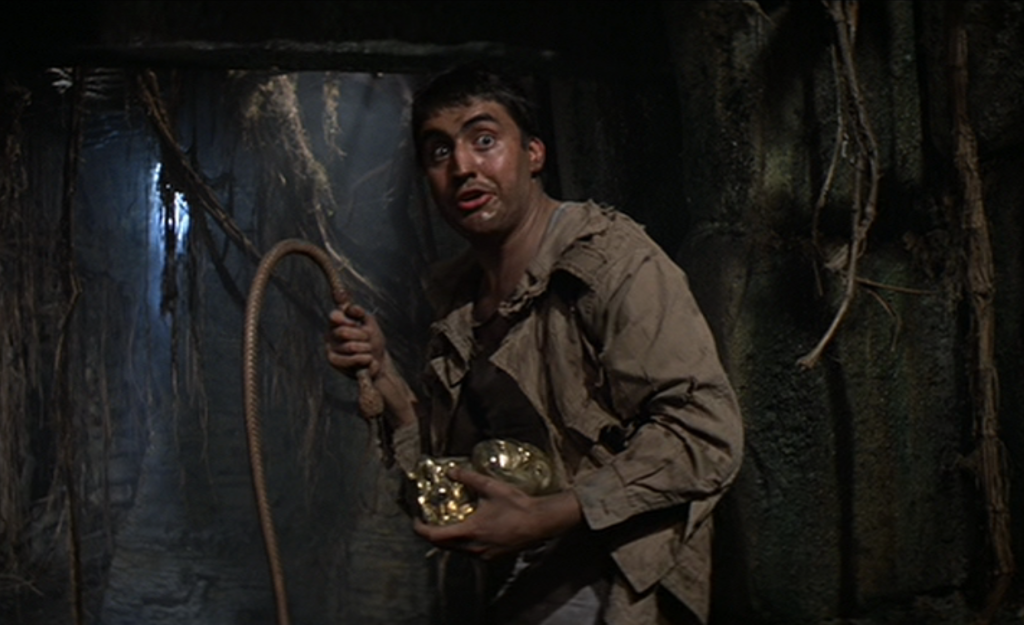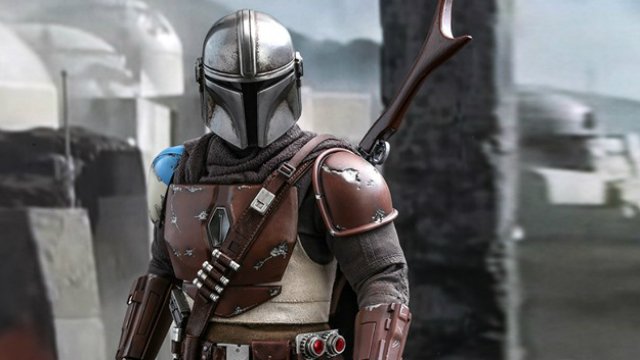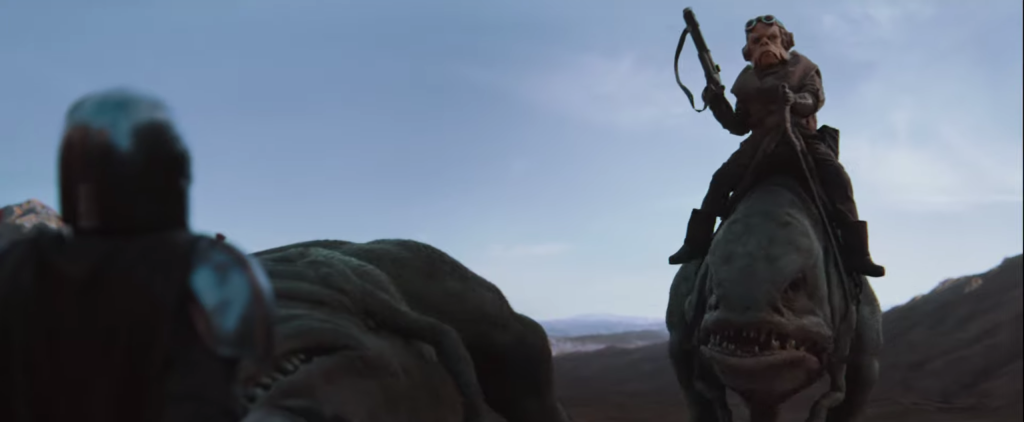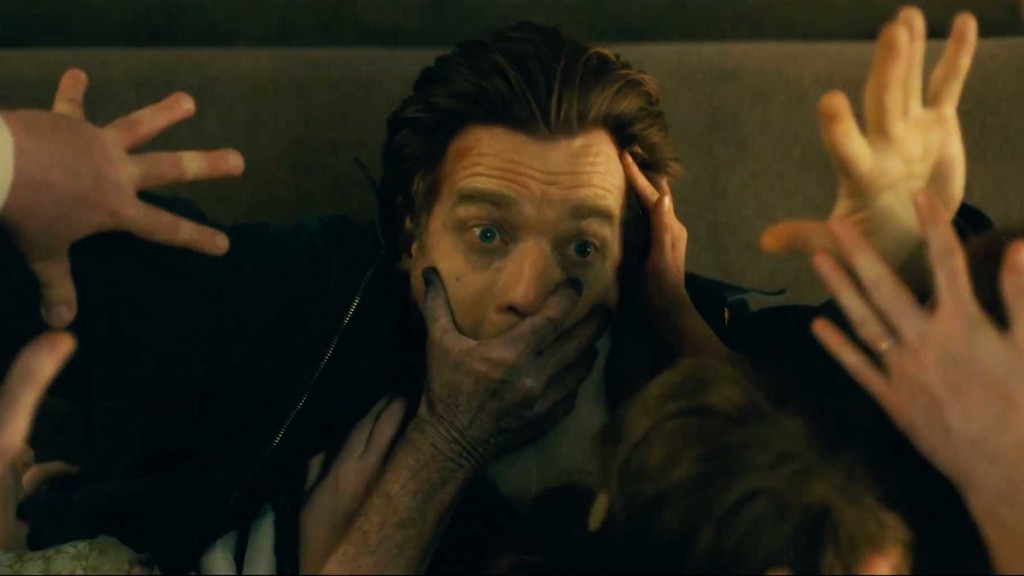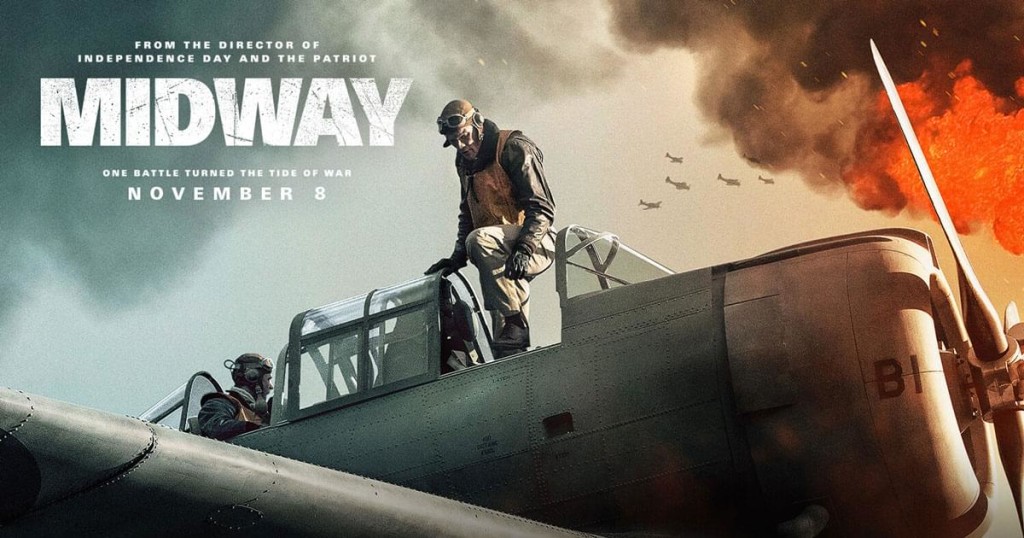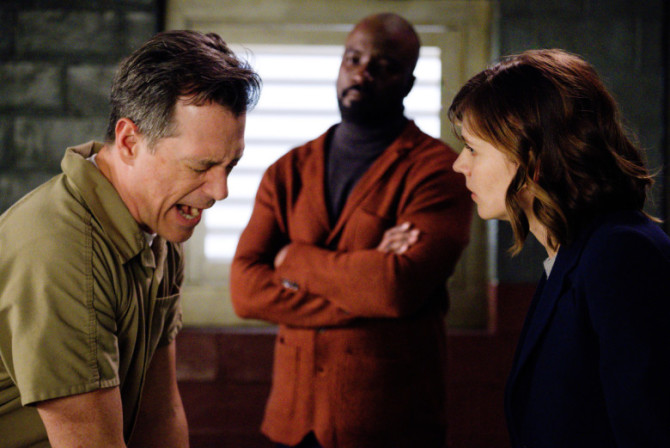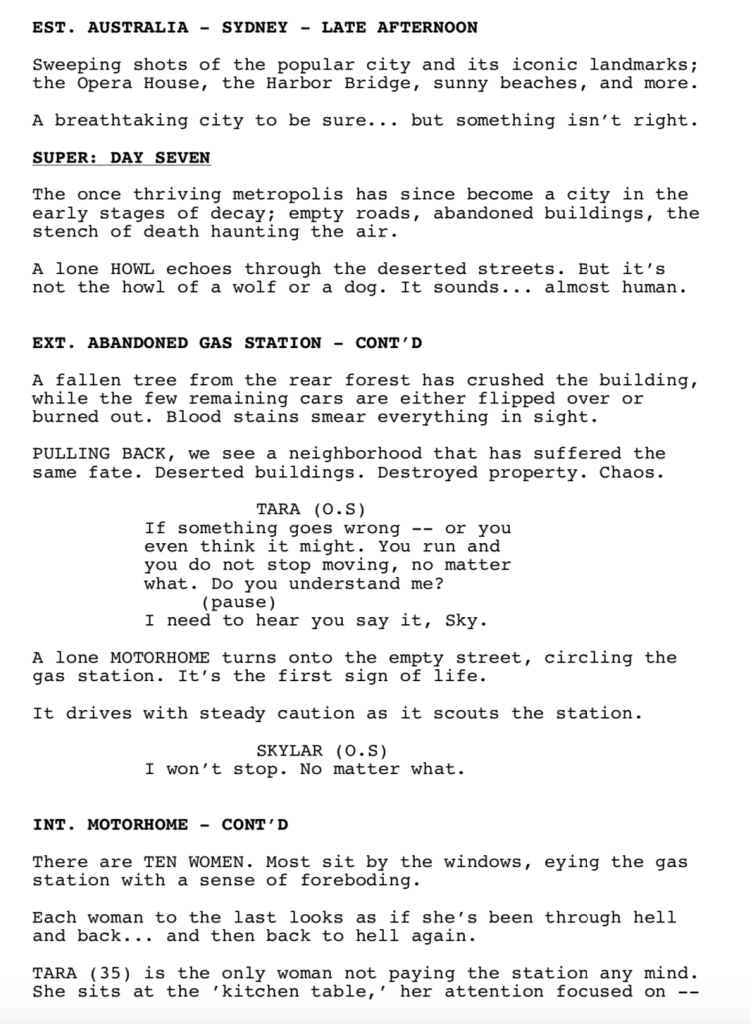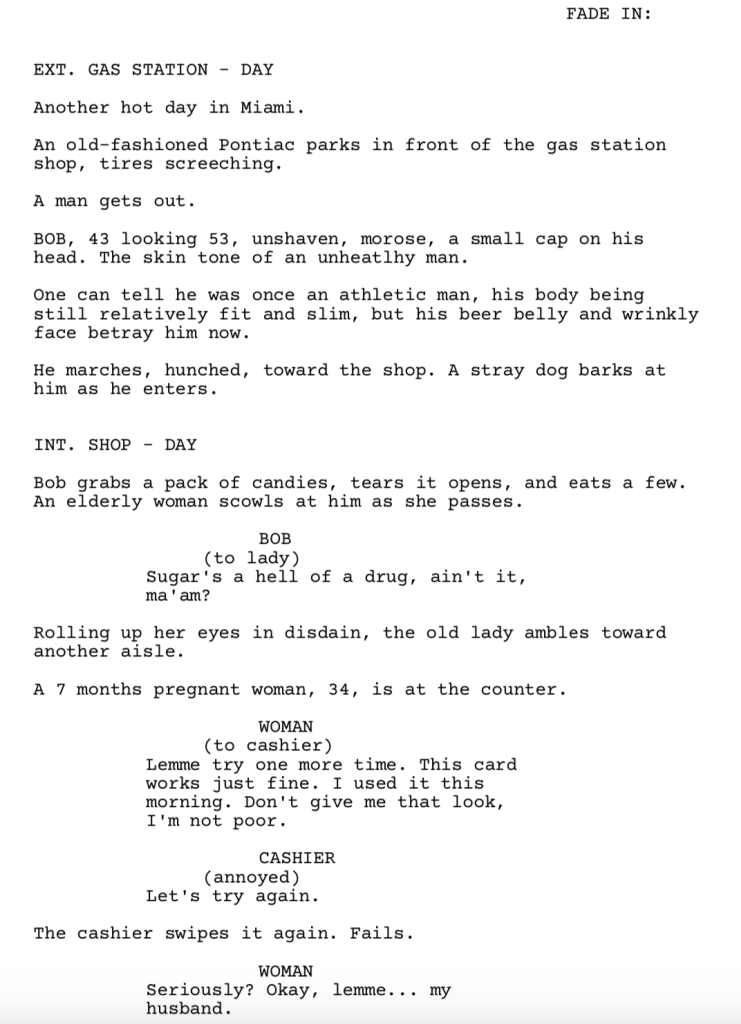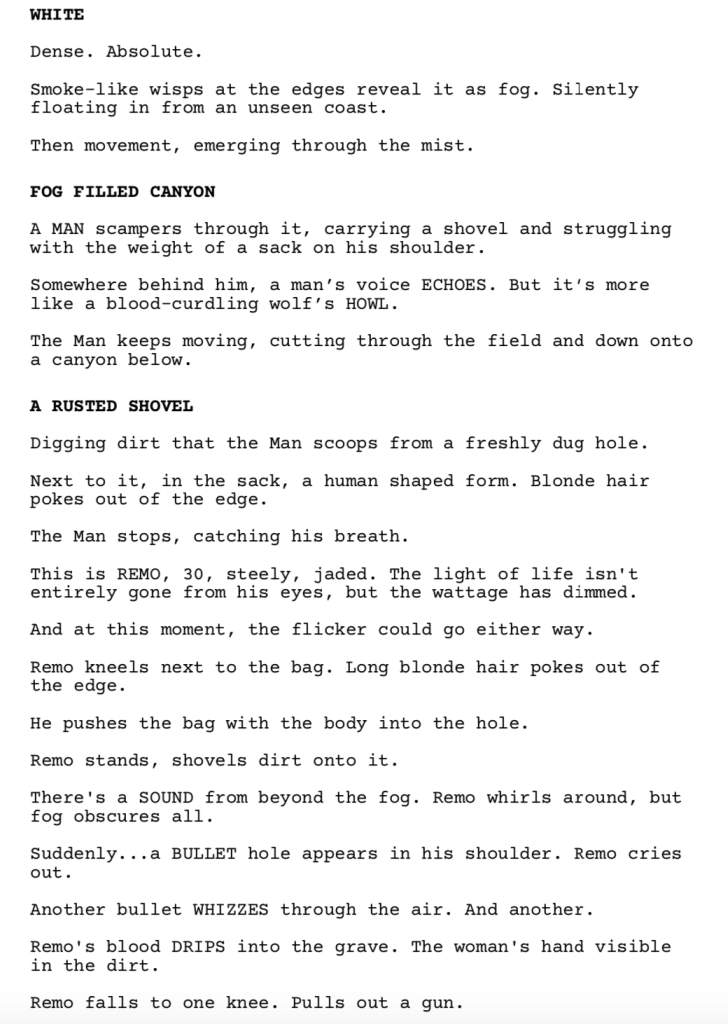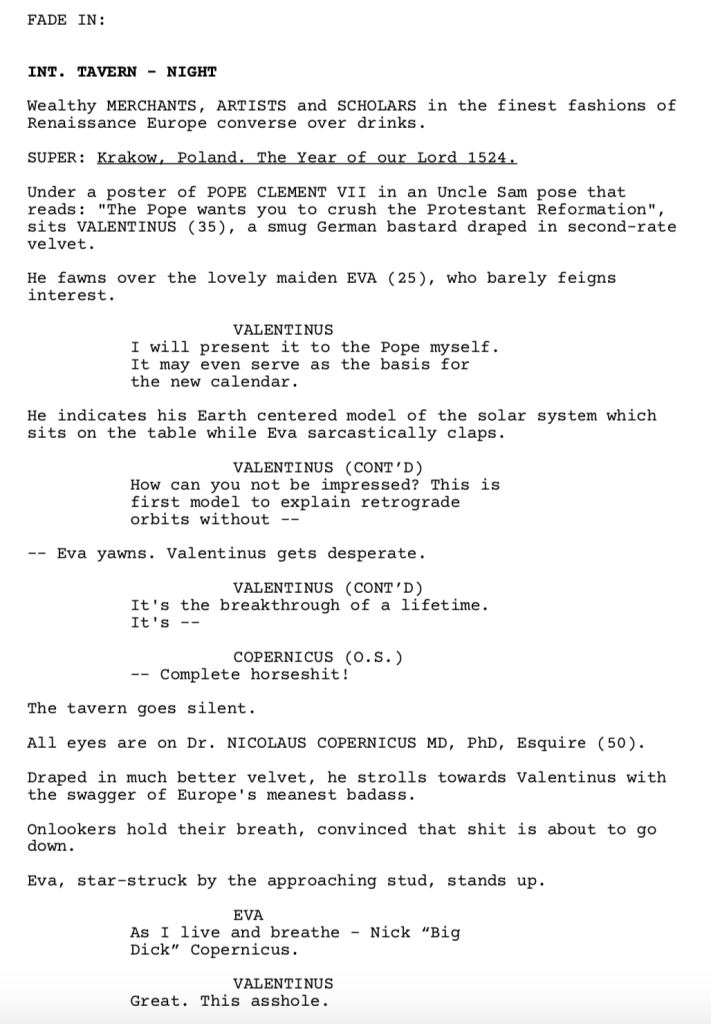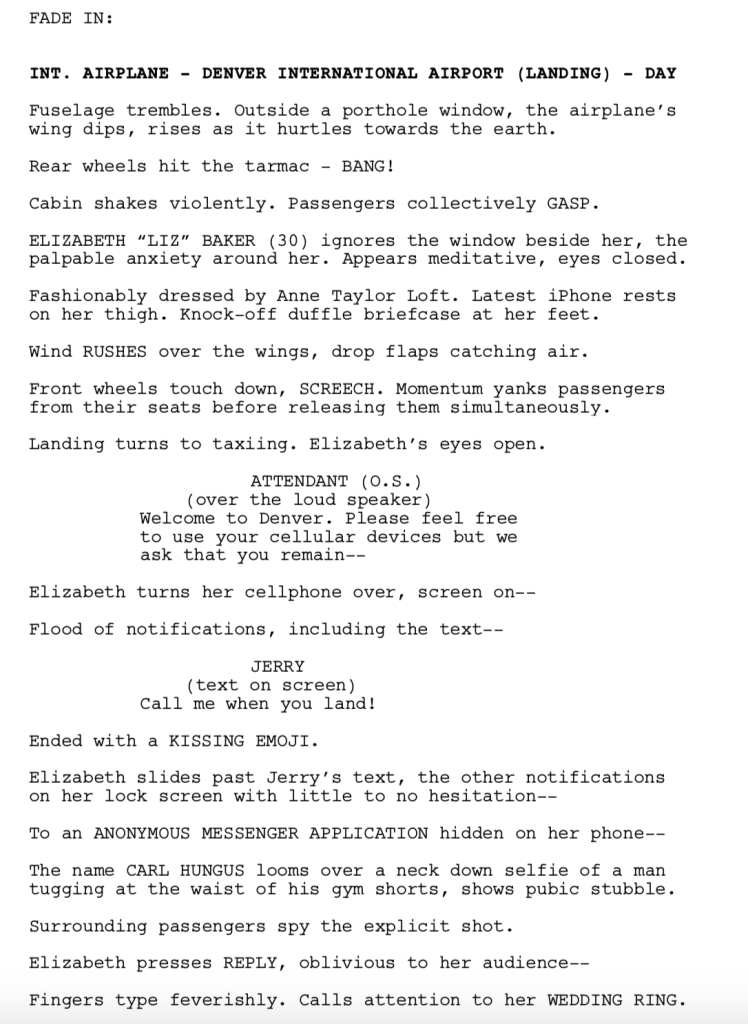Not long ago I was reading a screenplay and I noticed that all of the scenes were average to boring. But no matter how hard I tried, I couldn’t put my finger on why. It wasn’t as if the writer was making any obvious mistakes. But the scenes lacked a clear punch, specifically the ones involving dialogue.
It wasn’t until later in the day, when I’d long since finished the script, that the answer came to me. The main character wasn’t going up against any problems he couldn’t handle. The reason it was hard to identify this was that, on the surface, the obstacles were there. Our hero would need to talk his way out of a tough situation, for example. And yet, I never doubted that the hero would be able to do it.
And that introduced me to a new term: THE FALSE OBSTACLE.
Obstacles are extremely important in screenwriting. The formula you want to follow is this: Hero goes after objective + an obstacle gets in their way = he either succeeds or fails. Afterwards, you start the formula over again. And you’re doing this again and again throughout the screenplay.
However, there’s a common mistake screenwriters make when applying this formula. And not just beginner screenwriters. It can happen to any writer regardless of their level. The mistake is that the writer will create an obstacle that they already know how to get their hero out of.
In order to explain this, let’s use one of the most famous scenes ever, the scene with Indiana Jones trying to escape the cave in the opening of Raiders of the Lost Ark. There comes a moment late in the sequence where Indy reaches a pit that he isn’t able to jump across. On the other side of the pit is his assistant, who’s holding his whip. His assistant offers a trade. Toss me the gold idol and I’ll give you your whip so you can get across.
This is a common scenario for a writer to get tunnel-vision on. He believes that giving up the idol for survival is a strong enough trade-off for the audience to be okay with. So he knows how Indy is going to survive before he’s even started writing the scene. Is it good scene if they trade? It’s okay. But it’s not a true obstacle if the solution is that easy.
So what writer Lawrence Kasdan does is he has Indy toss over the idol but the assistant DOESN’T TOSS BACK THE WHIP. Now, it’s a REAL OBSTACLE. Because the writer’s lazy option is no longer available and he must figure out how Indy is going to get out of this. That’s how you want to approach obstacles. You want them to be legitimately hard to overcome and not just lip service that the audience already knows the hero can handle.
But this script I was reading wasn’t an action script. It was dialogue driven. The hero repeatedly needed things from other characters and had to convince/persuade them to get what he wanted. In some cases, his life was on the line. And yet, for some reason, the scenes weren’t compelling.
I knew they were false obstacles but because they weren’t physical, like Indy needing his whip, I didn’t know how to fix the problem
And then it hit me. The writer wasn’t seeing the scene through the other characters’ eyes. They were only seeing the scene through the hero’s eyes. When you only see a scenario through your hero’s eyes, all the dialogue you give to the other characters will be, intentional or not, crafted to make things easier for your hero.
Let’s say a fictional character named Henry has a dead body in his trunk and gets stopped by a policeman. It’s the ultimate obstacle. If Henry doesn’t convince this cop to let him go, he’s toast.
If you only write this scene through Henry’s point of view, you will write weak dialogue. You won’t make the cop as suspicious as he needs to be. You won’t have him ask tough enough questions. Chances are you won’t even know enough about this cop to understand WHAT he’d do in this scenario.
To you, the cop is a pawn who must put up enough resistance to create conflict, but not enough to make your job difficult as writer. And when you approach the scene that way, you will get a lot of false obstacle dialogue. It will never truly feel like your hero is in danger.
So here’s a hack to solve the problem. And it’s not easy. But if you want to become a better writer, this will do it.
Open a new document and write the scene FROM THE COP’S POINT OF VIEW. The cop is now YOUR HERO. The guy in the car – Henry – he’s just a guy to the cop. Have him suspect that Henry is acting skittish so he does everything in his power to figure out what he’s hiding. I guarantee – GUARANTEE – that the cop’s dialogue will improve by AT LEAST 200%. And that the scene will be a lot more intense in the process.
Afterwards, go back to the Henry scene – the one that’s actually in your script – and combine it with your new Cop scene. You’ll find that your crutch – being able to manipulate the cop’s dialogue in a way that makes it easier on your hero – is gone. The cop will be asking legitimately tough questions. He’ll be asking Henry to do things he doesn’t want to do. And while that may be scarier to write since you won’t know exactly how your hero will get out of the situation, I guarantee that your scene will be more riveting. Cause we’re not going to know how he gets out of this either. And that’s what’s exciting when you’re reading something – is the not knowing.
You can apply this to any scene with two or more characters. If your dialogue feels flat, first make sure that the basics are in place (one of the characters has a clear goal, someone else in the scene doesn’t want to give them that goal, and there are legitimate stakes involved in the hero achieving his goal) and then write the scene from the other characters’ points-of-view. If you do this for a scene and it doesn’t make the scene better? I give you full permission to come back to this post, tell me I’m an idiot, and that this was terrible advice.
But I’m confident that’s not going to happen. Now go write some great dialogue!
Genre: Drama/Comedy
Premise: The young president of a boutique publishing house must convince a crotchety old reclusive author to come out and do a promotional tour for his first book in 30 years.
About: This project was recently put together, pairing Michael Caine with Aubrey Plaza. The script was originally one of the winners in the 2015 Nicholl Fellowship Screenplay Contest. The film is being directed by newcomer Lina Roessler, who’s directed several well-received short films.
Writer: Anthony Grieco
Details: 107 pages
I was at the self checkout today, scanning my honey baked ham, when a checker came up behind me and quietly asked, “Sir, do you need a bag?” Without hesitation I blurted out, “should’ve cut the Burrg scene Baby Yoda!” The poor woman had no idea what I was talking about and slowly backed away. It goes to show just how much this opening Mandalorian episode has scarred me. So I decided to jump into a world as far away from Star Wars as possible. A script about a writer? With Aubrey Plaza attached? And no jawas. Good enough for me.
20-something Lucy Skinner recently inherited New York’s best boutique publishing house from her deceased father, who started the company 40 years ago when he discovered an unknown writer named Harris Shaw. But things are not going well for Lucy. After a series of failed serious books, she’s shifted the company focus to more juvenile fare. But their latest release, Dragons of Orion, isn’t moving any copies. Skinner needs to do something fast or she’s going to lose the company.
With the help of her assistant, tightly-wound Ben, Lucy realizes that Harris Shaw – the very gentleman responsible for the publishing house existing, is still under contract to deliver a book! It’s been 30 years since anybody’s seen the guy but a Harris Shaw novel carries some serious street cred. So off her and Ben go to Harris’s remote home, only to get screamed AND shot at.
But Lucy can’t give up. Big publishers are breathing down her neck, offering money to buy her out, and at a certain point, she’ll have to do it. When Lucy realizes Harris is in deep financial trouble himself, she plays up how a best seller can fix it all. It just so happens Harris has a finished novel. But, according to him, it’s terrible. Not to worry, Lucy says. It’s not about quality. It’s about creating buzz. And so off they go.
However, it immediately becomes clear to Lucy that Harris isn’t the best pitch man. He drinks and smokes at every book reading, touts that everything in the book is b.s., and will occasionally toss the book on the floor and start urinating on it. Luckily for Lucy, these embarrassing episodes start going viral. And Harris becomes a minor celebrity.
But they’re still not selling any books! “You have to start reading for people,” she tells him. And what parts should I read, he asks. Lucy stares back blankly. It’s clear that Lucy hasn’t even read the book. Eventually, as usually happens in these movies, Lucy and Harris find common ground and begin promoting the book properly. And the book moves up the charts. But it isn’t enough to cover all the money Harris owes. Which means Lucy must make a tough decision. Does she leave Harris to fend for himself? Or sell her publishing house and bail him out?
Best Sellers is an okay script that doesn’t quite know what movie it wants to be. Sometimes it feels like a true-to-life independent film that’s making a statement about the human condition. Other times it feels like one of those glossed up Hollywood versions of indie movies. The kinds that star Hugh Grant and have enough money to include a cheesy pop song in their trailer. Which is surprising to me because the Nicholl usually celebrates the former. Not the latter.
I will say this: The writer made a good choice to focus on Lucy. Remember that when you’re writing about writers, you’re entering into very boring subject matter. There’s nothing more boring than watching people write or listening to people talk about writing. The only time anybody’s been able to liven up a writing story is when they cut to the writer’s imagination of whatever they’re working on. And, unfortunately, that’s been done too many times.
By focusing instead on Lucy, the script becomes more ACTIVE. And that’s what you’re looking for in any screenplay. You’re trying to find the most active plot line. That means following a main character with an IMPORTANT GOAL that has HIGH STAKES attached to it that must be achieved with some URGENCY.
From there, your directive is to put obstacles in your hero’s way that make achieving their goal difficult. Doing so creates DOUBT in the reader that the goal can be achieved. And that’s the reason people watch. Is the uncertainty. It’s this tease that the hero probably won’t win which makes you hope that they somehow figure it out. The big script obstacle is baked right inside Best Sellers’ meal. Harris. He doesn’t want to do this. He fights and complains and resists in every scene. This is a great formula for writing a good story.
In contrast, look at yesterday’s awful pilot for The Mandalorian. Where was the obstacle? Did we doubt the Mandalorian at any point in the story? He picks up a guy who is such a dolt, he opens a giant cabinet of guns which he could use to kill the Mandalorian… and just closes it. Nope, I’ll accept being taken in, he says. Great obstacle writing there Favreau. The only time there’s even a hint of doubt is in the final scene, when they’re fighting off the town members. Not suprisingly, that’s the only scene in the episode that works.
Sorry for the detour. I’m so disappointed by that let down of a show.
One thing you definitely want to include in these indie character-driven screenplays is a good character-driven twist. A lot of writers think that a twist is “below” their “serious” drama screenplay. Like it’s a cheap ploy that sell out directors like JJ Abrams depend on. But a well-constructed character twist can really elevate an indie film. This one has a good one. The whole time we keep bringing up the fact that Lucy’s dad is gone and left her this publishing house. Then she gets an emergency call late in the script, goes to a remote care center with Harris, and we’re shocked to see her father, who has a serious form of dementia. You realize in the moment that Grieco (the writer) never outright said that the dad was dead. This not only gave the script a late jolt, but it added a more complicated layer to the story, since both of these characters have a complicated relationship with this man.
And, actually, Grieco does some of his best work in the final act. A lot of the overdone comedic stuff (gotta piss on another book – zoinks!) is pushed off to the side in favor of the characters and what they’re going through. Some of you are probably wondering if that late-script Harris illness is a bit too convenient. But that plot point works if you adequately set it up. Harris is literally the most unhealthy person you’ve ever seen onscreen. He’s created a modified belt holster that allows him to have a bottle of whiskey attached to his hip at all times. So it’s not surprising when we find out that his insides are failing. But yeah, if that sort of plot reveal comes out of nowhere, it won’t work.
I wanted to love this. It had the elements of being a really good script. But its lack of commitment to a clear tone kept getting in the way. Still, I thought it was fun and worth checking out, especially if you like these kinds of movies.
[ ] What the hell did I just read?
[ ] wasn’t for me
[x] worth the read
[ ] impressive
[ ] genius
What I learned: If you get stuck in your screenplay, take a step back, look at all your characters and ask yourself, “Who is the most active character in my script?” What you might find is that it’s someone other than the hero you chose. If that’s the case, ask yourself what your script looks like with that other person as the main character. That’s not to say your script will only work if they become your hero. But you at least want to imagine the movie through their eyes. Because you might find that the script does get a lot better if they’re leading the charge.
Welcome to The Mandalorian Teleplay Chronicles. I will be reviewing every episode of The Mandalorian’s first season with an eye towards helping writers learn TV writing. Whether the show is a breakout hit or a Jar Jar Binks level bust, we’re going to be focusing on how to become better TV writers. It should be fun!
Genre: Sci-Fi (TV Drama – 1 hour)
Premise: A bounty hunter is tasked with locating and bringing in a rare bounty. But when he runs into a droid going after the same bounty, the two are forced to team up and bring it in together.
About: The Mandalorian is the first ever live action Star Wars TV show, which can be found exclusively on the new Disney Plus streaming service. Jon Favreau created the series and wrote the pilot episode. Long time George Lucas padawan Dave Filoni is making his live action directing debut with the Mandalorian pilot episode.
Writer: Jon Favreau
Details: 40 minutes long
The Pilot.
The most important episode of a TV show.
It’s either going to hook us and make us want more. Or bore us into a race to change the channel. Remote controls are like nuclear weapons in the hands of viewers. They only need to be bored for seconds to erase your show from their screen, and by association, existence.
For that reason, the first lesson in writing a pilot isn’t any different from the first lesson of writing a feature: WRITE A GREAT FIRST SCENE. Hook the viewer. Because if you have a great first scene, a viewer will give you some leeway. Most will give you a good ten minutes. And that’s enough time to convince someone your pilot is worth watching to the end.
Before I tell you how Mandalorian did in this department, let’s give you the lowdown on the plot.
The Mandalorian walks into a bar. No seriously. Mandalorian enters a bar on the outskirts of an icy world. He sits down to have a drink when some heavies – who are bullying a little amphibious man – start taunting him. Mandalorian hops up and beats up the guys he has to beat up and kills the guys he has to kill.
Amphibious Guy thanks him. Not so fast, Mandalorian says. He shows him a “puck.” Amphibious Guy is Mandalorian’s bounty. He’ll be coming home with him. The two grab an Uber from a flute-playing snout-alien and head to Mandlorian’s ship, which is resting on a thin sheen of ice. Just as they take off, an under-sea Hippopotamus creature breaks out of the ice and grabs the ship. Mandalorian electrocutes him with his electro-rifle and off they go.
Mandalorian places poor Amphibious Guy into carbon freezing and into storage with his other frozen bounties. He then meets up with his bounty-giver, Greef Carga. Greef confesses he doesn’t have any high-level bounties left, but he knows someone who does. So Mandalorian goes to this new guy who’s protected by Storm Troopers, which is weird because the Empire’s been destroyed (this takes place after Return of the Jedi).
Storm Trooper Owner gives Mandalorian a special bounty – so special he doesn’t even know where the exact location of the target is, only where it was last seen… 50 years ago! Mandalorian then engages in a really weird shoulder-armor making ritual with Female Mandalorian before shooting off to the remote rocky planet where his special bounty is hiding.
After hanging out with a guy I’ll call Billy Crystal in The Princess Bride because that’s clearly who this character was based on, Mandalorian engages in a cheesy scene where he must tame a lizard horse in order to ride it. He then waddles off to a remote town where he’s angry to find another bounty hunter there, a tall robot named IG-11. There are so many people guarding the target that Mandalorian must team up with IG-11 with a promise to split the bounty.
[SUPER MAJOR SPOILER IN NEXT PARAGRAPH]
In one of the best scenes in the pilot, IG-11 keeps threatening to self-destruct because he’s not allowed to be taken alive, and Mandalorian must talk him down WHILE also shooting back at the endless wave of bad guys. After a fun sequence where the Mandalorian takes out a giant hover-canon, the two break into the building where they find a tiny little hover-stroller. They lift the blanket and inside is a… a baby Yoda creature. Cut to black.
Okay, we’re going to get to all the screenwriting stuff in a second. But first let’s address this ultra-nerdy Star Wars ending.
I’m calling cheap shot. As we’re going to discuss, this episode wasn’t very good. And you don’t get saved just because you drop a WTF super star wars cliffhanger in at the end. It would’ve been much better had you crafted an ACTUAL clever ending, a payoff from an earlier setup, a twist built off character development, anything that had to do with writing as opposed to Star Wars mythology. Because you can’t keep doing that. You can’t have Baby Jabba the Hutt at the end of the second episode, Baby Han Solo at the end the third episode. This bought you some time. But it doesn’t cover up the average writing throughout the rest of the episode.
Let’s get back on track here. Time to learn about TV writing.
Like I said, the first order of business is writing a great first scene to your pilot. Favreau tries to do that here. Showing your character kick the butts of a bunch of bullies is a solid way to pull us in. There was also a nice little twist at the end where Amphibious Guy thinks he’s been saved, when, in actuality, he’s just been caught.
The second most important thing you’re trying to do in a pilot is get the audience to care about your hero. Doesn’t necessarily mean they must like him. But they have to care about him. Mandalorian beating up baddies makes us care about him (or at least enough to keep us intrigued).
But here’s the first thing I didn’t think about going into the series that now I’m very worried about. The main character doesn’t take off his mask. It’s hard for audiences to connect with people whose eyes they can actually see. To build a show around a character whose face we never see? How are you going to build a connection? Has this ever been tried before? I don’t think so. And I definitely didn’t feel closeness to the Mandalorian. I’m interested in him cause he looks cool. But if I’m not going to get any face to face connection with him at all, I predict that being a major problem moving forward.
Once you’ve written a great opening scene and you’ve made us care about your protagonist, your job is to move into the episode goal as soon as possible. You can delay this if interesting things are happening. And that’s what Mandalorian does. Before he can return his bounty and receive his goal, Mandalorian is attacked by an ice monster. Stuff like that is fine because there’s conflict and stakes and danger. We’ll stick with you if your protagonist is battling obstacles before he gets to his goal.
Mandalorian finally returns his bounty and gets his episode goal. And there’s a bigger TV lesson to learn here. You want to come up with show ideas that naturally lend themselves to repeated goals. This is why cop and hospital and law shows are so popular. There’s always another criminal to take down. There’s always another patient to save. There’s always another court case to win. This means that every episode has natural goals built in.
The Mandalorian swims in these same waters. Bounty-hunting is a goal-oriented business. You always have another bounty to go after. This should make episode-writing easy. Because when you don’t have this stuff built in, you have to come up with goals out of thin air every episode and that can be difficult.
Throughout your middle acts, your focus should be on introducing the other characters in interesting ways. Remember, features are about plot. TV is about character. You can get away with thin secondary characters in a feature. Not the case in a TV show. Most of the characters you create are going to have an hour or more of screen time a season. So you can’t just come up with a cool character. You have to think about what their past is like (if they’re battling demons, trying to escape something), what kind of problems they’re dealing with in the present, and what kind of interesting places the story might take them in the future.
For whatever reason, this episode of Mandalorian was only 40 minutes long. And outside of Billy Crystal and IG-11, we didn’t get to know anyone that well. So I’d say Favreau failed in this department. I barely know any of the characters after Mandalorian Chapter 1.
After all your hard work, you are rewarded with the best thing about writing for TV: You don’t have to wrap everything up! Wrapping things up is the hardest part about writing a feature. Maybe 5% of movies have great endings. With TV, all you need to do is give us an ending that makes us want to come back for more. You don’t have to have any idea where that ending goes. You just have to give us something exciting. Here, it’s Baby Yoda. For you, it will be something more creative. Something story-based.
I was hoping this show would provide me with a lot of examples of how to write a pilot. Unfortunately, this proves that even if you’re following the blueprint, you can still fail. The choices you make can be average, even if they’re “right.” For example, the opening scene where Mandalorian beats up and kills a bunch of guys in a bar is a decent scene. But nothing I haven’t seen before. As a writer, you should always be looking to elevate your choices beyond the choices of everyone else. Not just give us slight variations on stuff we’ve already seen.
The biggest thing I’m bummed about here is how lonely this episode felt. I’ve never experienced that before watching a Star Wars movie. I don’t know if they were going for that on purpose or not but it was unpleasant. The only time this felt like good Star Wars was when Mandalorian and IG-11 teamed up. Outside of that, this was a bummer beginning to this series.
[ ] a total bust
[x] this show is in trouble
[ ] at least it’s Star Wars
[ ] pretty darn good
[ ] off to an amazing start
What I learned: Always look for a spin on classic lines. In that first scene, where Mandalorian corners Amphibious Guy, Amphibious Guy resists him. Mandalorian says, “I can take you in…”. What’s the line that everybody says after this? I can take you in… [what]. “Dead or alive” right? But that line’s been used to death. So look for a spin on it. Mandalorian says, “I can bring you in warm or cold.”
I wanted to congratulate the Amateur Showdown winner this weekend but when I went to check the vote, I saw that it was the closest Amateur Showdown we’ve had all year! Four scripts are all within a stone’s throw of each other. I’m going to extend the voting out one more day. Head over there, read, and vote if you haven’t already. I’ll review the winner Friday.
Also remember that we have ACTION GENRE SHOWDOWN Friday, November 22 and HOLIDAY GENRE SHOWDOWN December 13. Get me your scripts in by 6pm Pacific Time the 21st and the 12th if you want to enter. PDFs should be sent to carsonreeves3@gmail.com with your title, genre, logline, and a pitch to myself and potential readers why you believe your script deserves a shot. Good luck!
Okay, let’s jump into the box office, shall we?
Everybody in the industry is BAFFLED this morning that Dr. Sleep tanked at the box office.
Everybody, that is, but me.
Dr. Sleep violates one of the biggest screenwriting rules there is. In fact, I might argue this is THE most important screenwriting rule. Now in fairness to Dr. Sleep, it wasn’t created to be a movie. It was a novel. It only became a movie once “It” became a monster hit. It also didn’t help that this is Stephen King’s second worst title ever (behind Mr. Mercedes). When I see the title, “Dr. Sleep,” I’m assuming it’s a movie about a doctor who specializes in sleep disorders? That’s not a topic I’m intrigued by.
The answer should’ve been obvious to Warner Brothers why this movie tanked since they’re usually pretty sharp about these things. What was the problem? NOBODY KNEW WHAT THE MOVIE WAS ABOUT. When you watched any marketing material about Dr. Sleep, you didn’t understand what the story was.
What is the story? I’m not asking people who have read the novel. I’m talking to everybody else. Did you know what this was about? Cause I didn’t. And I’m someone who follows every single project in Hollywood. I can only imagine what John in Iowa is going to think after seeing this trailer. There is no clear goal. There’s no clear story. It’s a hurricane of imagery without a point.
In order to drive this home, I’ll give you the counter-example: “It.” That movie was about a crazy clown killing kids. Everybody who watched the It trailer understood that. That’s why so many people went to see it. And this is why it’s so important to get this right in your screenwriting. When you’re conceiving of a screenplay, you must imagine the trailer and know that it will be CLEAR AS DAY what your movie is about to the audience. If you don’t have that basic requirement in place, nobody’s going to produce your script (unless you happen to have sold 200 million novels, of course).
As for the rest of the box office, Midway surprised everyone by taking the number 1 slot. I want to tell a quick story about this one. The screenwriter for Midway, Wes Tooke, first sent me a script a decade ago. And I liked it a lot. I even sent it to a few producers but nothing came of it. I knew he was talented though. Then, for many years, I didn’t hear from him and I wasn’t even sure he was still writing. But apparently, he kept writing, kept pushing, kept getting his stuff out there. And now he’s the SOLE SCREENWRITER for a number 1 movie. That’s incredible. And I’m so happy for Wes because I knew he was talented and it’s a testament to the power of perseverance. Let that be a lesson. It CAN HAPPEN. But you gotta keep pushing.
Last Christmas, which finished fourth at the box office with 11 million dollars, has its own issue. When you watch the trailers, the main character, the girl, felt really angry. The reason for that, I think, is there’s a subtle movement going on where writers are trying to break the belief that men are allowed to be unlikable in movies but women aren’t. This rule has been uttered in many a studio office over the last 50 years. But here’s what these writers are overlooking. If you’re trying to break a belief out of anger, out of, “I’m going to prove something,” – it’s not going to work. Audiences aren’t with you on this ‘change the world’ stuff. All they care about is being entertained. So if you want to break the belief, that’s great. But you have to be smart about it. You have to find ways to do what you want to do but still keep the audience on your side. I’m sorry but this character came off as an extremely unlikeable person in the trailer and it was a big reason why I had no interest in the movie.
Joker continues to dominate and is about to hit the 1 billion dollar mark worldwide. You may be saying, “This has to be the most profitable movie of all time, right?” It cost 50 million dollars to produce and it’s made a billion! It’s a good question. I’m not sure. If you’re going by ratio of investment to return, it’s not even in the ballpark. I think Paranormal Activity, which cost 50 grand to make, made 150 million. But as far as pure profit, I’m thinking Joker has to be up there near the top. It’s amazing when you think about it. They took a character piece drama – a genre that tops out in the 80 million dollar range – and they made a billion dollars with it. It’s going to be fascinating to see how this changes Warner Brothers’ comic book movie approach. And other studios as well. Who doesn’t want to cut their comic book production costs down by 80%? Or is Joker that lightning in a bottle anomaly never to be repeated again?
Our next topic is one I breach with a lot of respect. Film Riot is the best filmmaking channel on Youtube. Period. It’s top-rank stuff. Recently, the head of Film Riot, Ryan, made a short horror film in the hopes of turning it into a feature. That’s why I want to talk about it today. If you caught October’s newsletter, you may remember me discussing Christopher McQuarrie’s focus on writers making their own movies. I said that if you can’t afford to make a feature, you should shoot something from your script to show the potential of the project in order to attract investors. That is what Ryan did. And here’s the short.
It should be noted that Ryan is coming from the opposite position as all of us. This is a man who studies directing religiously. Whereas everyone here focuses on writing. So you guys have just as well trained an eye as I do about this script’s problems. However, I still want to address them because there’s a giant lesson to be learned from all this.
The problem with There Comes A Knocking is that it’s based on an extremely cliche horror event – a scary knock on the door. The scary knock on the door has literally been in 99% of all horror movies. Therefore, this short is showing us a scene we’ve watched dozens if not hundreds of times already. How is that going to be compelling? When it comes to concepts, you have to give the audience something unique. That’s what makes people care – is that the something is different, and therefore, exciting.
But there’s a much bigger lesson to learn from this. If you’re going to shoot a scene from your script with the goal to get investors interested, you don’t want to do it like this. You don’t want to take a random scene or a random sequence and shoot it. Because the audience isn’t going to know the context and therefore they’re not going to understand what they’re watching. Instead, you want to find the best scene you can find in your script THAT CAN BE TURNED INTO A SHORT FILM. That means not only is the scene good, but you can rewrite it into a self-contained short film that makes sense on its own.
That’s the problem with There Comes A Knocking. It doesn’t work on its own. There’s no proper build up, conflict, or resolution. It’s more a couple of exposition shots and then a jump scare. You want to think more like Cargo…
Clear beginning, clear middle, and clear end. Because people aren’t going to care how good your shot composition or lighting or production design are. All of those things immediately melt into the background of a viewing experience. The only thing that matters is HOW YOU MAKE THE VIEWER FEEL. If they ENJOY what they’ve seen, they will want to work with you. And a complete story from start to finish is the best chance you have at achieving this.
With that said, I remain a huge Film Riot fan. But someone needs to tell Ryan to put his next script up on Amateur Showdown. 20 people here would’ve been able to identify and help him fix these mistakes in a single weekend.
Finally, I want to share with you a new show I’ve been watching. It’s a show that not many people have picked up on yet because there are 17,000 shows out there and who has time for yet another obsession!? But a couple of people I respect mentioned “Evil,” to me. I didn’t bother checking it out at first only because it was a network show and all network shows have low ceilings. The last network show I got into was The Good Wife. Even if you’re like me and don’t like procedurals, that show was exceptionally written.
Anyway, I begrudgingly paid $1.99 to download the pilot for Evil and started watching it. To my surprise, I was into it. And then, after ten minutes, I was more into it. And then after another ten minutes, I was hooked. That never happens to me. Because of what I do, my brain is always in analysis mode. But that mode had been deactivated. All I cared about was what happened next in this great pilot! Out of curiosity, I looked up who created the show. And lo and behold, it was none other than Michelle and Robert King, THE CREATORS OF THE GOOD WIFE.
It was a reminder to me that good writers are good writers no matter what they’re writing. They understand how to construct interesting characters, how to construct compelling scenes. And one of the more underrated things that good writers do is they consistently surprise you. You think you know who killed someone or who’s lying but the writers are always one step ahead of you. That’s my experience with Michelle and Robert King.
For those who don’t know, Evil is about a clinical psychologist, Kirstin, who gets recruited by a priest, Mike, to investigate a demonic possession of a man on trial for murder. It’s one of those X-Files situations where Kristin doesn’t believe in this stuff while Mike does. So she’s always convinced there’s a logical explanation for whatever weird stuff happens.
In a scene where she’s interviewing the murderer, he gives her impossible details about her life that he can’t know. Literally the only way for him to know is if there really is a demon inside of him. And I’m thinking to myself, “How are the writers going to give a rational explanation for this?” Yet through a series of carefully scripted scenes both before and after the interview, they did it. They came up with a logical reason for how he would know what he knew. And it’s moments like that where I know I’m dealing with good writers. With bad writers, I’m in control. I know what’s happening next. With good writers, they’re in control. They know what I’m thinking and they use it against me.
I don’t think I’ll ever get past the overly slick “broadcast” production look of these network shows. I much prefer the cinematic look of soemthing like Breaking Bad. But if you’re into possession stories at all, this is worth checking out. As far as I’m concerned, Michelle and Robret King are the best writers on network television.
Oh, last thing! I don’t know how this Disney Channel thing is going to work. If they turn it on exactly at 12:01 am Tuesday and The Mandalorian is available, I will be reviewing that tomorrow. But if they don’t get it up until later in the morning, then I’ll review it on Wednesday. Can’t wait!
Okay, so here’s the deal. Pay attention! We’re going to do TWO MORE Amateur Showdowns after this one and that will wrap up 2019. The first of these will be an ACTION GENRE SHOWDOWN. That will take place on Friday, November 22. In order to be a part of that , you must have your action script sent to me by Thursday, November 21, 6:00 pm Pacific Time. All action hybrid genres can compete. Straight Action, Action-Comedy, Action-Thriller, Action-Sci-fi. Send’em on in!
Then, on Friday, December 13th, we’re going to have the HOLIDAY GENRE SHOWDOWN. If you have a holiday-themed script, send it on in. And since you have over a month, if you’ve got a good holiday script concept, maybe try and write it. It was just the other week that a script that was written in a single week won. So it’s certainly possible something written in a month can claim top prize. The deadline for that one is Thursday, December 12th, 6:00 pm Pacific Time.
Amateur Showdown is a bi-weekly screenplay tournament where I pick five scripts that were submitted to me and then you, the readers of this site, read as much of each script as possible and vote for your favorite in the comments section. The winner will receive a review the following Friday that could result in props from your peers, representation, a spot on one of the big end-of-the-year screenwriting lists, and in rare cases, a SALE!
In order to participate, e-mail me at carsonreeves3@gmail.com. Include in the e-mail the script title, the genre, a logline, and a pitch to myself and potential readers why you believe your script deserves a shot. It could be long, short, passionate, to-the-point. Whatever you think will convince someone your script is worth opening, make your case. Just like Hollywood, the Scriptshadow readers are a fickle bunch. So be convincing!
In the meantime, here are THIS WEEK’S entries. I think we’ve got a few good ones in here. Good luck to all!
Title: THE HUNTED
Genre: Social Commentary/Zombie-Horror
Logline: When a virus turns all males into feral zombies known as predators, a mother and her daughter become their prey and must evade capture while crossing the Australian desert to reach an alleged safe house.
Why You Should Read: Readers beware, there’s a new type of zombie on the horizon and it’s unlike anything you’ve seen before….
Several months ago now, my horror script ‘Raw Meat’ won the Amateur Friday Showdown, and it even managed to crack Carson’s Top Ten Amateur Scripts of the Year (number eight). ‘The Hunted’ is my latest horror script. In the zombie film premise, I saw a chance to explore the current social divide that exists between men and women, a divide culminating in the #MeToo movement. This is a fast-paced zombie flick, with a twist on the zombie premise that actually has something to say. Plenty of scares, my best character work yet, and an easy read are just some of the reasons to flip it open and give it a try.
Title: BORED TO LIFE
Genre: Dramedy
Logline: A mysterious runaway teenage girl helps a lonely, sugar-addicted ex-military man to rekindle with the love of his life, in exchange for a place to stay.
Why You Should Read: I’m well aware that ‘mysterious’ is vague, but the character lies about her identity a lot and it’s the biggest reveal of the story, amongst many other twists and turns. I didn’t want to spoil it for the sake of the logline. Maybe I’m wrong, you tell me…
In this story, the duo works well because of their differences, that much-needed contrast that makes an unusual relationship memorable. They’re quirky and fun, full of personality, share chemistry, and are both lying through their teeth, which makes them both entertainingly unreliable until the truth reveals itself. — The script has been praised for its voice and humor. It’s right there from the first scene if you don’t believe it. If you don’t laugh or smile at the introductory scene, stop reading… but you won’t! Hopefully… Thanks :)
Title: Palomino
Genre: Crime-Thriller/Drama
Logline: Determined to stay straight, an ex-con becomes bodyguard to a wealthy couple, but is soon caught up in a dangerous game when he’s blackmailed into committing crimes on their behalf.
Why You Should Read: On the surface, Palomino is a slow burn neo-noir, but underneath, it’s also a bittersweet, haunting love story. Inspired by the films and visual flair of Nicolas Winding Refn and David Fincher, Palomino features compelling characters and an unforgettable climax. — Palomino came about during my recent professional breakthrough as a screenwriter. I’ve been a struggling writer for years. And although I’m still not repped, my drama screenplay was recently filmed with some great name talent! We’re currently looking for a distributor. — On set, a story idea I had been playing with came into focus on our main location, which I thought was the perfect setting for a neo-noir. Later, outlining the first draft, I religiously read and re-read Carson’s posts on structure and character. I hope I’ve properly utilized some of his wisdom here. — Thank you to all who read it, and a big thanks to Carson for his site and invaluable advice over the years.
Title: Renaissance Men
Genre: Action, Comedy
Logline: In 16th-century Rome, astronomical badass Nicolaus Copernicus seeks papal approval for his radical new theory about the universe, but after he’s framed for the Pope’s kidnapping, he’ll risk his life and legacy to track down the real abductors.
Why You Should Read: I’ve always loved history. I just wish it could be funnier. If I had a time machine, I probably wouldn’t use it kill baby Hitler. Instead, I’d just swap him with baby Charlie Chaplin who was born a mere four days earlier. But since the latest version of Final Draft is easier to get my hands on than a functioning time machine, I decided to write Renaissance Men. A hilarious adventure that pits some of Renaissance Europe’s biggest egos including Copernicus, Machiavelli, Nostradamus and Michelangelo against each other in a high stakes game of cat and mouse.
I had many reasons why I wanted to write this. First, I knew it would be a lot of fun. Second, I was sure I could generate a ton of laughs. And last but not least, because a story about how the rich and powerful will cover up scientific truth to protect their political interests is even more relevant today than it was 500 years ago.
Title: Lifted
Genre: Thriller
Logline: Upon landing for her business trip in a personal s@#%-storm, a woman climbs into the wrong Lyft and finds herself at the mercy of an unknown driver.
Why You Should Read: After grabbing a Lyft from the chaos that is JFK on a Friday night, the thought of “what if this wasn’t my ride” hit like a sledgehammer. Drowsy after a six-hour flight. In the dark trying to spot license plates that all look the same, maybe a number or letter off from one another. This easily could not be my ride, and if it isn’t, who is this guy driving me? Does anyone know I’m in this guy’s car, at this moment? Or am I lost, potentially forever if the driver so desires?
The driver asks me if the address I give him is in Bushwick. This is my third time in New York, first time visiting this buddy at this apartment so I don’t know. How easy would it be for this guy to drive me to the wrong street, put me in a situation I could never fathom.
Fifteen minutes of typing out these thoughts on my phone while my girlfriend stared at me like I was a lunatic turned the rest of vacation into figuring out this story.
LIFTED is a contained thriller, somewhere between Locke and Buried, and hopefully just as produceable as the two. It feeds off the rideshare setting which has yet to fully be tapped for its dramatic potential. I hope LIFTED may generate an onslaught of creativity in utilizing the setting and showing just how strange rideshare can be in comparison to its predecessors.
I hope you find the above interesting enough to crack LIFTED open. If not, thank you for even the momentary passing thought. I appreciate all notes, good and bad and everything in-between.
Thank you again for giving LIFTED the time of day.
P.S. Since someone may bring it up/ask, I didn’t go with LYFTED because I knew that, in the long run, the film would never reach the screen with that title. I worked relatively close to a previous film that had some issues with the rideshare business including the use of IP. So, to compromise, I went with LIFTED, as in steal.

